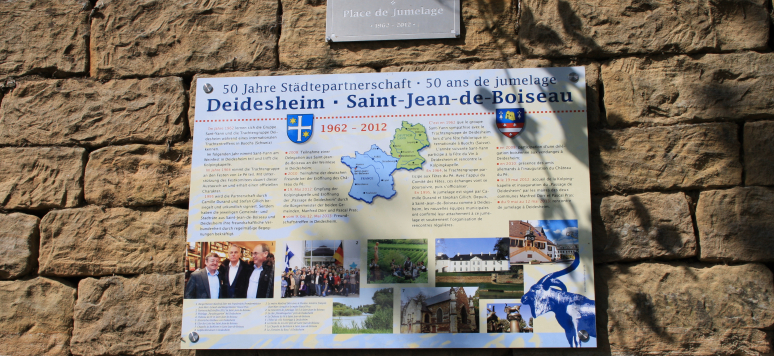Visions franco-allemandes - Franco-German Civil Society: Object and Actor of Bilateral Relations. Balance and Perspectives after the Signing of the Treaty of Aachen Visions franco-allemandes, No. 32, December 2021

The treaty signed by France and Germany in Aachen on January 22, 2019 highlights the role of civil society in bilateral cooperation and aims to contribute to "bringing societies [and citizens in both countries] closer together".
Since the beginning of the millennium, the media and public actors have been promoting "citizens initiatives", which are supposed to be a guarantee of democracy and commitment from below.
Starting from a definition of civil society in relation to economic and state actors, this article aims to analyze current issues and implications of said civil society in bilateral and European relations, after recalling the historical contribution of these actors to Franco-German relations. As an example, twinning is analyzed in depth in order to distinguish different periods. The partnerships between cities allow us to understand how civil societies contribute to a collective reflection on the past as well as how they face contemporary challenges, such as the 'closing' of borders during the coronavirus pandemic.
Today, associations or societal forums are considered as the foundation of European construction. They have also managed to specify their needs and to communicate them better to politicians. This dedication even resulted in the successful implementation of the Citizens’ Fund. They are coordinating their work, as reflected in the initiatives of the two major federations of Franco-German associations, the Federation of Franco-German Associations for Europe (FAFA) and the Vereinigung der Deutsch-Französischen Gesellschaften / Federation of the German-French Societies (VDFG), which intend to be a Franco-German citizens' office aiming to go beyond the bilateral perimeter to play a greater role in Europe. However, it is clear that the work carried out by French and German associations is still often bilateral. The Europeanization of Franco-German social initiatives remain a challenge for the coming years.
Prof. Dr. Corine Defrance is Research Director at the CNRS and Deputy Director of the UMR SIRICE (Sorbonne Identités, relations internationales et civilisations de l'Europe) research center. She is an Associate Professor at the University of Paris 1-Panthéon-Sorbonne.
Dr. Tanja Herrmann holds a PhD in History and defended a dissertation in Cotutelle at the University of Mainz and the University Paris 1 Panthéon-Sorbonne on the second boom of Franco-German town twinning (1985-1994) in October 2017.
This publication is available the following languages:
- FRENCH: "Société civile franco-allemande : enjeu et acteur des relations bilatérales. Bilan et perspectives après la signature du traité d’Aix-la-Chapelle [1]" (pdf)
- GERMAN: "Die deutsch-französische Zivilgesellschaft: Gegenstand und Akteur der bilateralen Beziehungen. Bilanz und Perspektiven nach Unterzeichnung des Aachener Vertrags [2]" (pdf)
